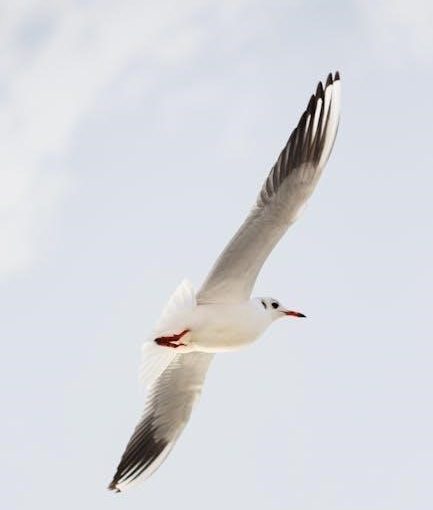Lord of the Flies, a timeless novel by William Golding, explores human nature, civilization, and savagery through the story of boys stranded on an island. Its themes of power, morality, and fear remain universally relevant. First published in 1954, the book has become a classic in modern literature, earning Golding the Nobel Prize in Literature in 1983. The novel’s gripping narrative and profound insights continue to captivate readers worldwide, making it a must-read for anyone interested in understanding the complexities of human behavior and society. The availability of a free PDF version of Lord of the Flies has made it more accessible, allowing readers to delve into its thought-provoking themes and immersive storytelling seamlessly.
Overview of the Novel
Lord of the Flies, written by William Golding, tells the story of a group of British schoolboys stranded on a remote island after a plane crash. With no adult supervision, the boys attempt to create a utopian society but gradually descend into chaos and savagery. The novel explores themes of human nature, power struggles, and the effects of isolation. Through characters like Ralph, Jack, and Piggy, Golding examines how Civilization and primal instincts collide. The boys’ initial optimism fades as fear, violence, and tribal behavior take over, leading to devastating consequences. The novel’s vivid narrative and timeless themes make it a compelling read.
Importance of the Free PDF Version
The availability of a free PDF version of Lord of the Flies has made the novel more accessible to readers worldwide. This digital format allows students, educators, and literature enthusiasts to easily download and study the book without cost or logistical barriers. The PDF preserves the original content, ensuring readers experience Golding’s profound themes and vivid storytelling as intended. It also enables convenient access on various devices, fostering a deeper engagement with the text. Additionally, the free PDF version promotes the novel’s reach, ensuring its timeless themes of human nature and society remain relevant for future generations to explore and analyze;

Key Themes in “Lord of the Flies”
Lord of the Flies explores profound themes such as human nature, morality, leadership, and the clash between civilization and savagery, offering insights into societal structures and individual behavior.
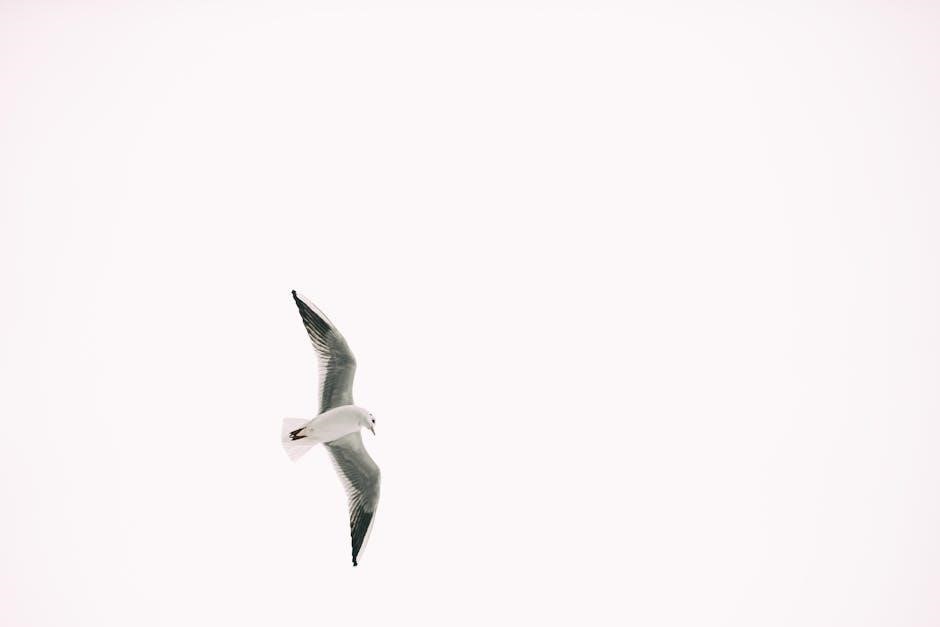
The Nature of Humanity and Society
Lord of the Flies delves into the inherent darkness of human nature, revealing how societal norms crumble when individuals are isolated from civilization. The novel portrays young boys, once innocent, descending into chaos and savagery, highlighting the primal instincts lurking beneath the surface of humanity. Golding illustrates that evil is not an external force but an intrinsic part of human nature, emerging when moral constraints are removed. Through this lens, the novel critiques societal structures, suggesting that civilization is a fragile veneer. The free PDF version allows readers to explore these profound themes, offering a timeless reflection on human behavior and societal collapse.
Civilization vs. Savagery
Lord of the Flies vividly explores the tension between civilization and savagery, as a group of boys stranded on an island gradually abandon moral constraints. Initially, they attempt to mimic societal norms, electing leaders and creating rules. However, as fear and primal instincts take over, their behavior descends into chaos and brutality. The novel symbolizes this struggle through objects like the conch shell, representing order, and the “beast,” embodying primal fears. The free PDF version allows readers to witness this transformation, highlighting how quickly civilization can unravel without external governance, revealing the inherent susceptibility of humanity to savagery when left unchecked.
Leadership and Power Dynamics
Lord of the Flies examines the complexities of leadership and power through the characters of Ralph and Jack. Ralph, initially chosen as leader, represents democratic ideals and the rule of law, symbolized by the conch shell. Jack, however, embodies authoritarianism, relying on fear and intimidation to assert control. As the novel progresses, Jack’s desire for power and dominance overshadows Ralph’s attempts to maintain order, leading to a violent struggle for leadership. The free PDF version highlights how Golding uses these dynamics to explore the darker aspects of human nature, revealing how power can corrupt even the most well-intentioned individuals, ultimately leading to chaos and destruction.
Fear and Its Impact on Behavior
Fear is a pervasive force in Lord of the Flies, driving the boys’ actions and unraveling their civility. The mysterious “beast” represents their collective terror, sparking paranoia and mistrust. As fear intensifies, the boys’ behavior becomes irrational, leading to violence and betrayal. Jack exploits fear to manipulate others, while Ralph struggles to maintain order. The free PDF version reveals how Golding masterfully portrays fear’s destructive power, showing how it erodes morality and escalates primal instincts. Through this lens, the novel underscores how fear can dominate human behavior, leading to chaos and the breakdown of societal norms.
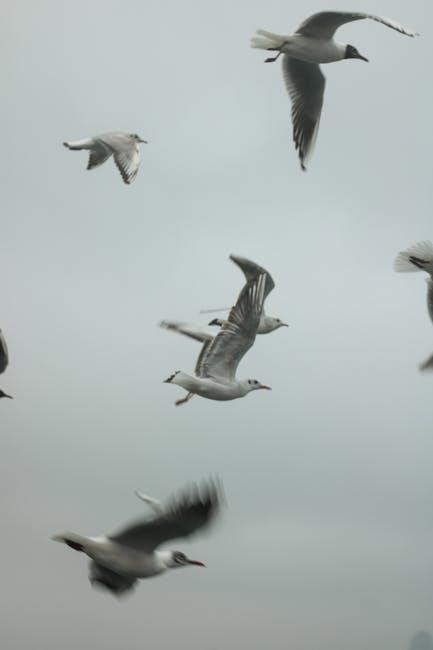
Morality and Ethics in Isolation
Morality and ethics in Lord of the Flies are tested as the boys face isolation without adult supervision. Golding explores how societal norms vanish, revealing inherent moral flaws. The free PDF version highlights this decline, as characters like Ralph cling to civility while Jack embraces savagery. The novel shows how isolation erodes ethical boundaries, leading to primal instincts and moral decay. Through their choices, Golding illustrates humanity’s capacity for both good and evil, emphasizing that morality is a fragile construct shaped by environment and societal expectations. This theme remains a cornerstone of the novel’s enduring relevance and philosophical depth.
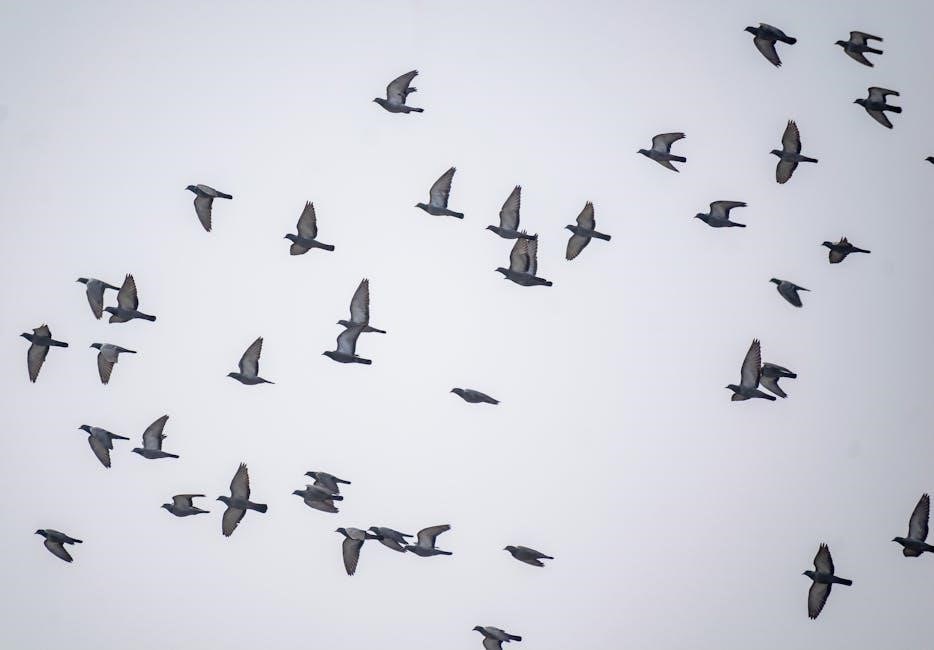
Plot Summary
A plane crash strands schoolboys on a remote island, sparking a tale of survival and societal collapse. Initially hopeful, the boys’ civility unravels, revealing primal instincts and chaos.
The Storyline and Setting
Lord of the Flies by William Golding unfolds on a remote, uninhabited tropical island during an unspecified war. A plane crash strands a group of British schoolboys, leaving them without adult supervision. The island, with its dense jungle, rocky terrain, and lagoon, becomes a microcosm of society. Initially, the boys attempt to create a utopia, electing leaders and establishing rules. However, their innocence fades as fear and savagery emerge. The novel’s setting—a paradise turned dystopia—mirrors the boys’ internal descent from civility to chaos. The scar left by the plane crash symbolizes the disruption of nature and the boys’ fragile existence.
Main Characters and Their Roles
The novel revolves around a group of British schoolboys, each representing distinct aspects of human nature. Ralph, with his fair hair, symbolizes order and democracy, striving to maintain civility. Jack, passionate and power-hungry, embodies the descent into savagery, leading the hunters. Piggy, the intelligent voice of reason, clutches the conch shell, a symbol of democracy. The boys’ roles evolve as they face isolation, revealing their true selves. Their interactions drive the story, exploring themes of leadership, fear, and morality. The characters’ dynamics illustrate how societal structures crumble without guidance, highlighting the novel’s timeless themes.
Key Events and Climax
The story unfolds with the boys discovering the conch shell, symbolizing order and democracy. They build shelters and agree to maintain a fire for rescue. Fear of the “beast” escalates tensions, leading to chaotic decisions. The death of Simon, who discovers the beast is a dead pilot, marks a tragic turning point. Jack’s tribe becomes increasingly savage, culminating in Piggy’s death and the destruction of the conch shell. Ralph is hunted by Jack’s tribe, but rescue comes as naval officers arrive, shocked by the boys’ savagery. These events highlight the descent into chaos and the loss of innocence, revealing humanity’s darker instincts.

Downloading the Free PDF
Accessing the free PDF of Lord of the Flies is straightforward. Websites like PDFDrive.to and thephilosopher.net offer direct downloads without payment or registration, ensuring easy access to this classic novel.
Steps to Access the PDF Version
To access the free PDF of Lord of the Flies, visit websites like PDFDrive.to or thephilosopher.net. Search for the title and author to find the PDF. Select the appropriate version, review the file details, and click the download button. Most platforms offer direct downloads without requiring payment or registration. Ensure compatibility with your device by selecting formats like PDF, ePub, or Kindle. Once downloaded, you can read the novel offline, making it a convenient option for study or personal reading. These steps provide easy access to this classic literary work.
Popular Websites for Download
Several websites offer free PDF downloads of Lord of the Flies. PDFDrive.to is a popular choice, providing direct access without registration or payment. Another reliable option is thephilosopher.net, where you can read the PDF directly in your browser or download it for offline access. Additionally, platforms like Project Gutenberg and Google Books may host versions of the novel, though availability varies. These websites ensure that readers can easily access and enjoy Golding’s masterpiece in a convenient digital format.
Available Formats and Compatibility
The free PDF version of Lord of the Flies is widely available and compatible with most devices. Readers can access the novel in formats such as PDF, ePub, and Kindle, ensuring versatility for different reading preferences. These formats are supported by popular e-readers, tablets, and smartphones, making it easy to enjoy the book on the go. The PDF format, in particular, is favored for its consistent layout and readability across various platforms. Whether you prefer reading on a desktop, laptop, or mobile device, the digital versions of Lord of the Flies are designed to provide a seamless and immersive reading experience.

Literary Significance
Lord of the Flies is a landmark novel by William Golding, awarded the Nobel Prize in Literature in 1983. Its exploration of human nature, civilization, and savagery has profoundly influenced modern literature. The availability of a free PDF version has further enhanced its accessibility, ensuring its timeless themes and moral questions reach a broader audience, solidifying its place as a cornerstone of educational and cultural discourse.
Awards and Recognition
William Golding won the Nobel Prize in Literature in 1983, with Lord of the Flies being a key work in his recognition. The novel’s exploration of human nature and society earned Golding global acclaim. An alternate version of the novel is set to be displayed in an exhibition celebrating its 70th anniversary, highlighting its enduring influence. The book’s themes of civilization and savagery continue to resonate, making it a cornerstone of literary studies. Its availability as a free PDF has further cemented its accessibility, ensuring its educational and cultural impact endures across generations.
Impact on Modern Literature
Lord of the Flies has profoundly influenced modern literature, offering a stark exploration of human nature and societal structures. Its themes of civilization versus savagery have inspired countless authors and genres, particularly in dystopian and psychological fiction. The novel’s raw, unflinching portrayal of human behavior has set a benchmark for writers exploring similar ideas. Its accessibility through free PDF versions has further amplified its reach, ensuring its relevance in contemporary discussions about morality, leadership, and fear. By challenging readers to confront the darker aspects of human nature, Golding’s work continues to shape literary narratives and spark critical thinking across generations.

Reading “Lord of the Flies” Online
Reading Lord of the Flies online is convenient, with the free PDF version widely available on platforms like PDFDrive.to. This digital access ensures easy readability anywhere, anytime, while preserving the novel’s timeless themes and immersive storytelling.
Options for Online Reading
Readers can access Lord of the Flies online through various platforms offering the free PDF version. Websites like PDFDrive.to and Lythrum Press provide direct links to download or read the book in a browser. Additionally, sites such as thephilosopher.net allow users to access the novel in an online reader without downloading. These options ensure convenience, enabling readers to enjoy the story on devices like smartphones, tablets, or computers. The digital format preserves the book’s original structure and readability, making it an ideal choice for those who prefer online access over physical copies. This accessibility has made the novel more reachable to a global audience, fostering a deeper engagement with its themes and narrative.
Benefits of Digital Access
Digital access to Lord of the Flies offers unparalleled convenience, allowing readers to access the novel anytime and anywhere. The free PDF version eliminates the need for physical storage, making it easy to carry on devices like smartphones, tablets, or e-readers. This format also enables seamless sharing and accessibility for students, educators, and book clubs. Additionally, digital access reduces the environmental impact of printing, aligning with modern sustainability goals. The ability to adjust font sizes and use search functions enhances readability and study efficiency. Overall, digital access democratizes literature, ensuring that William Golding’s timeless insights reach a broader audience worldwide.
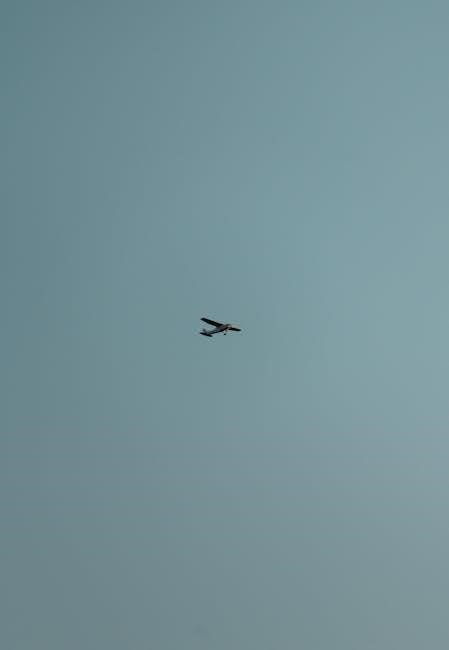
Analysis and Study Guides

Analysis and study guides for Lord of the Flies explore themes like human nature, civilization, and morality. Free PDFs offer thorough insights into characters and symbolic elements.
Themes and Symbolism
The free PDF of Lord of the Flies delves into profound themes such as human nature, civilization vs. savagery, and morality. The conch shell symbolizes order and democracy, while the “beast” represents primal fear; The island itself serves as a microcosm of society, highlighting how power dynamics and fear can unravel civilized behavior. Golding’s use of symbolism, like the boys’ descent into chaos, reflects the inherent darkness in human nature. These themes, explored in the novel, provide readers with a deeper understanding of societal structures and the human condition, making the free PDF a valuable resource for analysis and study.
Character Analysis
The free PDF of Lord of the Flies offers a detailed exploration of its characters, each representing distinct facets of human nature. Ralph, the protagonist, embodies leadership and democracy, while Jack symbolizes the lust for power and descent into savagery. Piggy, with his intelligence and rationality, struggles to maintain order, highlighting the fragility of civilization. Simon, the quiet and introspective boy, represents innocence and wisdom, ultimately uncovering the truth about the “beast.” The characters’ interactions and transformations reveal Golding’s profound insight into human behavior, making the free PDF an invaluable resource for analyzing their roles and development in the novel.
Discussion Points for Study Groups
The free PDF of Lord of the Flies provides ample material for dynamic study group discussions. Key topics include the novel’s exploration of human nature, the symbolism of the conch shell, and the significance of the “beast” as a metaphor for fear. Groups can analyze how characters like Ralph, Jack, and Piggy represent different aspects of leadership and morality. The transition from civility to savagery offers rich ground for debate, as does the role of Simon in uncovering truths about humanity. The free PDF’s accessibility allows groups to reference specific chapters and scenes, fostering deeper insights into Golding’s critique of society and human behavior.
